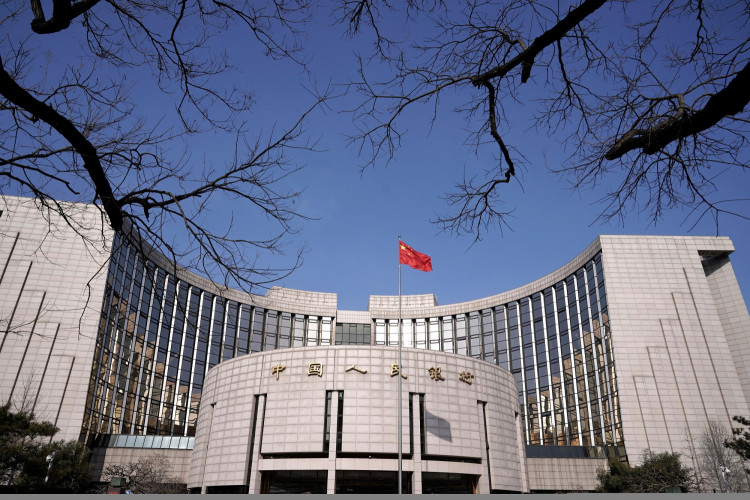China left its benchmark lending rates unchanged for a fourth consecutive month on Monday, choosing policy stability over immediate stimulus even after the U.S. Federal Reserve cut interest rates last week. The People's Bank of China (PBOC) maintained the one-year loan prime rate (LPR) at 3.0% and the five-year LPR at 3.5%, in line with forecasts from a Reuters survey of economists.
The decision underscores Beijing's cautious stance as it balances the need to support growth with concerns about fueling excess leverage. The one-year LPR serves as the reference for most new and outstanding loans, while the five-year LPR is used to price mortgage lending, making Monday's move a signal to households and businesses that policy will remain steady for now.
Chinese authorities have cut rates only once this year - a 10 basis-point reduction in May - after seven months of no changes. Economists say the PBOC appears to be watching how previous measures play out amid a rebound in domestic equities and relatively stable export performance.
"China's stock market has recently been on the rise, and export performance is also relatively solid," Reuters cited market experts as saying, adding that the PBOC's pause suggests policymakers see no immediate need for aggressive easing.
Still, economic data in July and August showed weakness, with export growth slowing to 4.4% in August - its lowest since February - as the impact of frontloaded shipments faded and U.S. trade restrictions weighed on third-country exports. Industrial output and retail sales also came in softer than expected, raising pressure on Beijing to act if momentum falters further.
Larry Hu, chief China economist at Macquarie, said "The persistently weak data throughout Jul. and Aug. likely gave policymakers justification to take more steps to stabilize the economy," forecasting another 10 basis-point rate cut before year-end. "(Chinese authorities) do not want to miss the 5% growth target, but they also do not want to overshoot it," he added, predicting gradual fine-tuning rather than a large stimulus.





